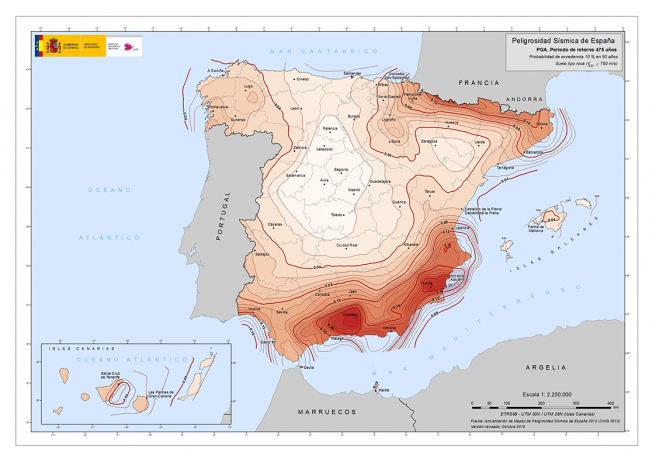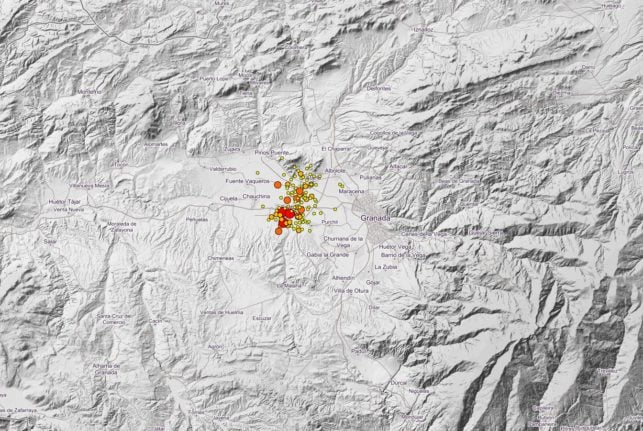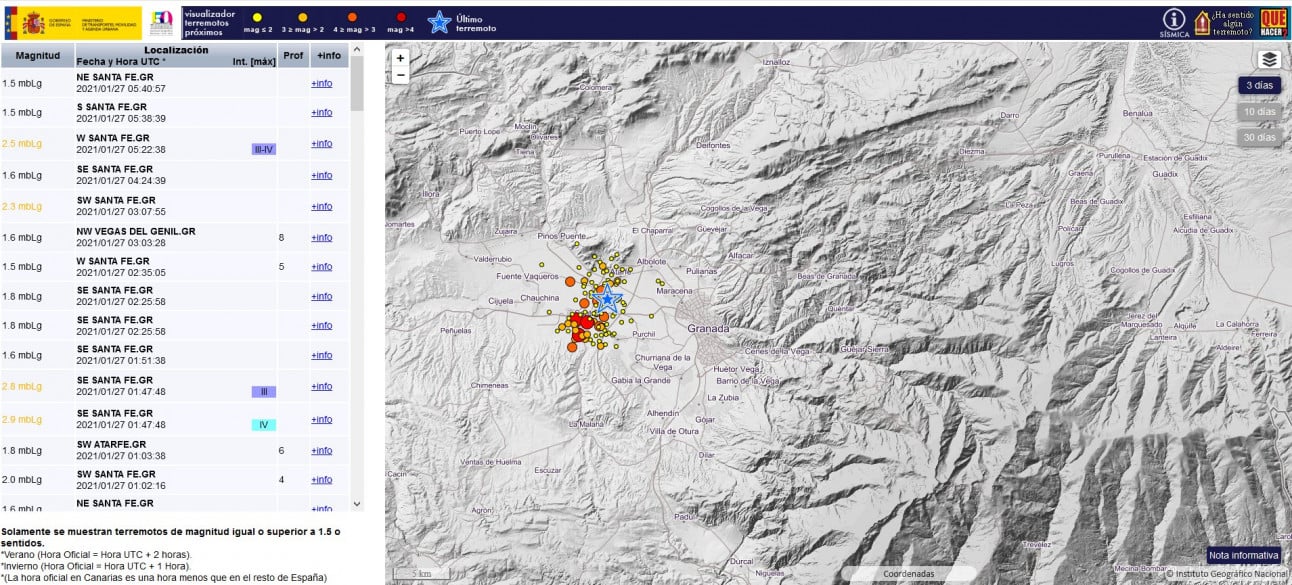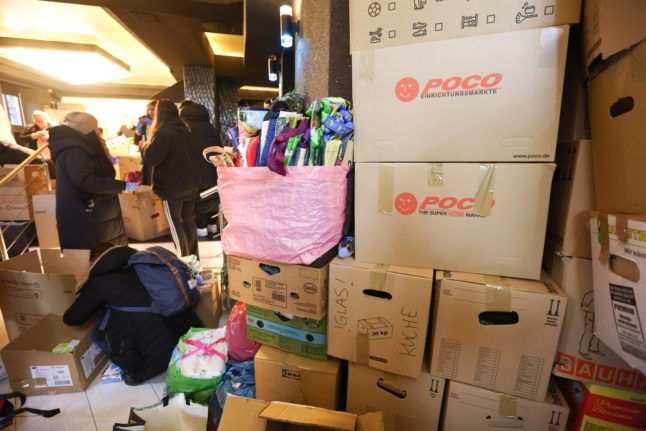Three of them had a magnitude of between 4 and 4.5, Spain's National Geographical Institute (IGN) said on Twitter.
“Various earthquakes shook Granada again overnight which has worried thousands of people. Please stay calm and follow the instructions of the emergency services,” tweeted Spanish Prime Minister Pedro Sanchez.
Many images posted online showed residents out in the street in the middle of the night, wearing pyjamas and coats, despite the coronavirus curfew.
? #EnDirecto Los granadinos continúan sentados en la calle por miedo a nuevas réplicas del #TerremotoGranada. Estas imágenes son de hace unos minutos en Camino de Ronda https://t.co/JqMMu81wzW pic.twitter.com/iKNJP59L2C
— ideal_granada (@ideal_granada) January 26, 2021
La alta frecuencia de terremotos registrados esta noche en #Granada ha sacado a la calle a muchos granadinos a pesar del toque de queda#TerremotoGranada #DistritoBeiro
Cortesía @carmenrovere pic.twitter.com/Ye07tkaeK3— GranadaiMedia (@granadaimedia) January 26, 2021
Since December 1st, a total of 281 shallow quakes have hit the area around Granada, of which eight had a magnitude of more than 3.0, an IGN statement said on Tuesday.
Of that number, 41 were felt by the population.
Another quake on Saturday in the same area had a magnitude of 4.4, causing cracks in walls and throwing objects to the ground, it said.
The interactive map above shows the location and strength of each quake to hit the zone in recent days. Source: IGN
“It's a worrying situation, I understand people's fears,” Granada Mayor Luis Salvador told Spain's public television on Wednesday, calling for calm.
“All the information we have indicates that although they are many and continuous, that is what prevents a more intense and devastating episode.”
The IGN said such seismic activity was “common in this area”, flagging it as one of the most seismically active regions of the Iberian Peninsula which experiences “numerous surface earthquakes of low to moderate magnitude, and occasionally with significant intensity”.
The map below produced by the Spanish government shows the risk of seismic activity across Spain.

Emergency services in Andalusia urged calm and issued guidance for what to do in an earthquake. The tips include seeking refuge beneath a heavy table if inside and if you have to leave the house, avoid running or using the elevator. In the street be careful of danger from falling electrical cables and falling masonary and if driving, park the car and stay put.
?#Consejos112 En este vídeo? te dejamos unas recomendaciones que debes tener en cuenta en caso de terremoto.
Lo más importante es mantener la calma y llamar al 1⃣1⃣2⃣en caso de #emergencia @AndaluciaJunta @InteriorJunta @IGN_Sismologia ? pic.twitter.com/QldftiBapT— Emergencias 112 (@E112Andalucia) January 26, 2021
The regional government warned people to be careful of fake news circulating, including a false message that the region had called a state of emergency in expectation of a major quake.
?#Consejos112 En este vídeo? te dejamos unas recomendaciones que debes tener en cuenta en caso de terremoto.
Lo más importante es mantener la calma y llamar al 1⃣1⃣2⃣en caso de #emergencia @AndaluciaJunta @InteriorJunta @IGN_Sismologia ? pic.twitter.com/QldftiBapT— Emergencias 112 (@E112Andalucia) January 26, 2021
But in a tweet from the emergency services of Andalusia, it did advise people to be prepared and have an emergency pack ready just in case.
? #Consejos112 La #prevención es la mejor forma de afrontar una #emergencia como puede ser un #terremoto, por eso antes de que ocurra:
✅Prepara linterna, radio, silbato, agua embotellada y un extintor
✅ Localiza las salidas de emergencia
✅ Aprende a cerrar las llaves de paso pic.twitter.com/rFFx5dMOjg— Emergencias 112 (@E112Andalucia) January 27, 2021




 Please whitelist us to continue reading.
Please whitelist us to continue reading.
Member comments